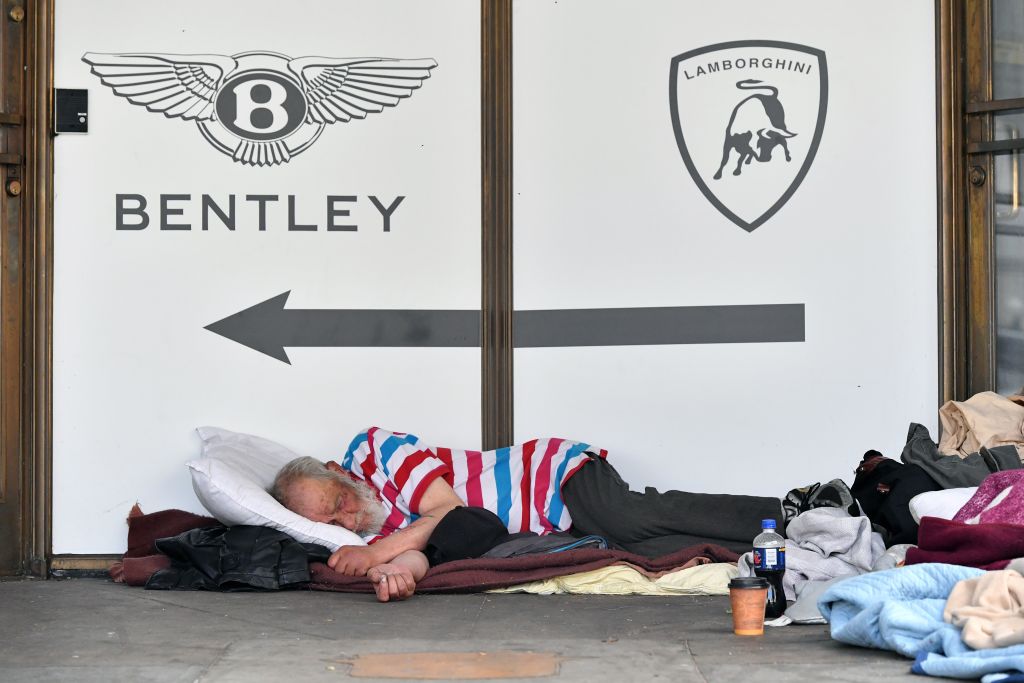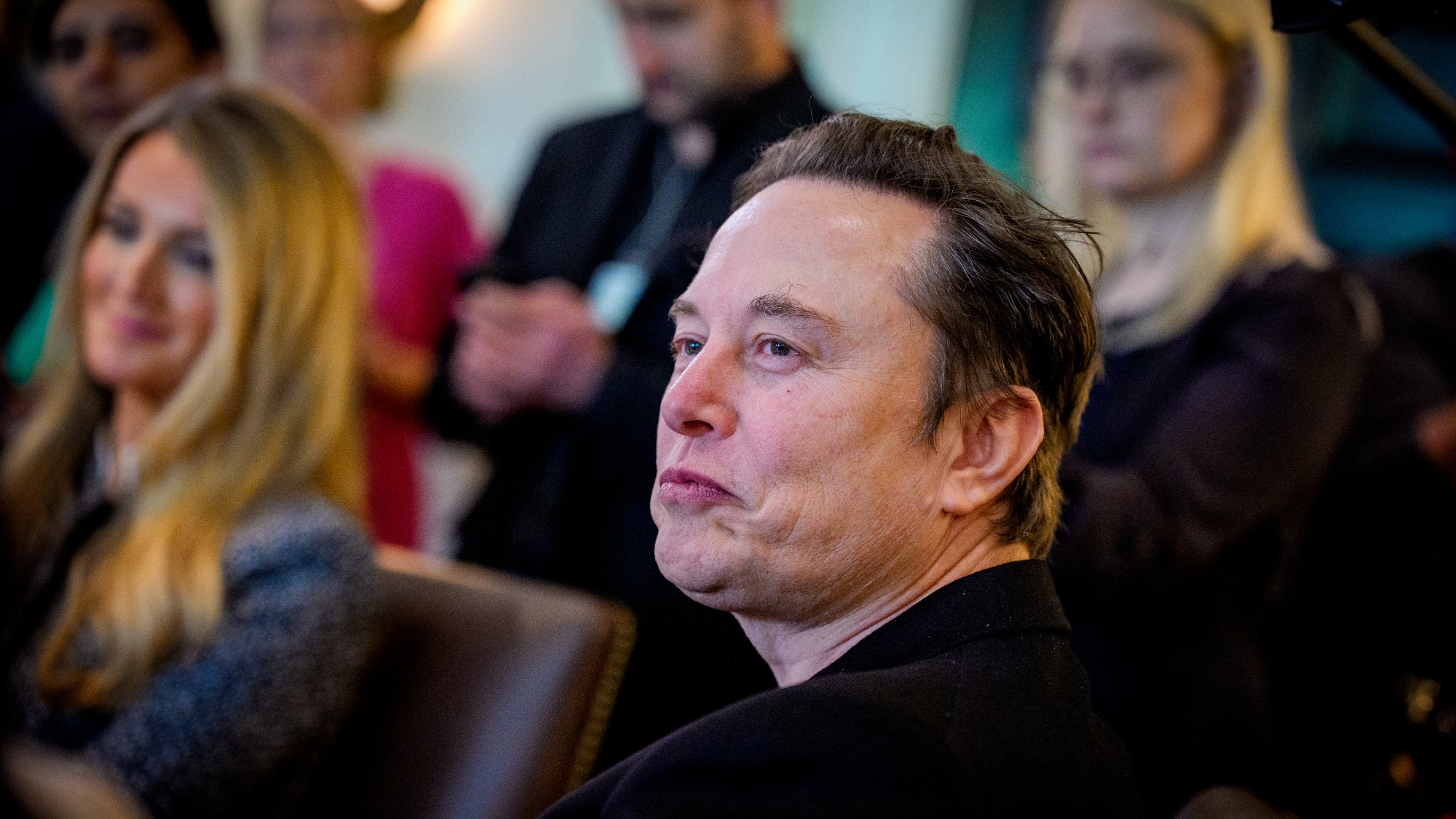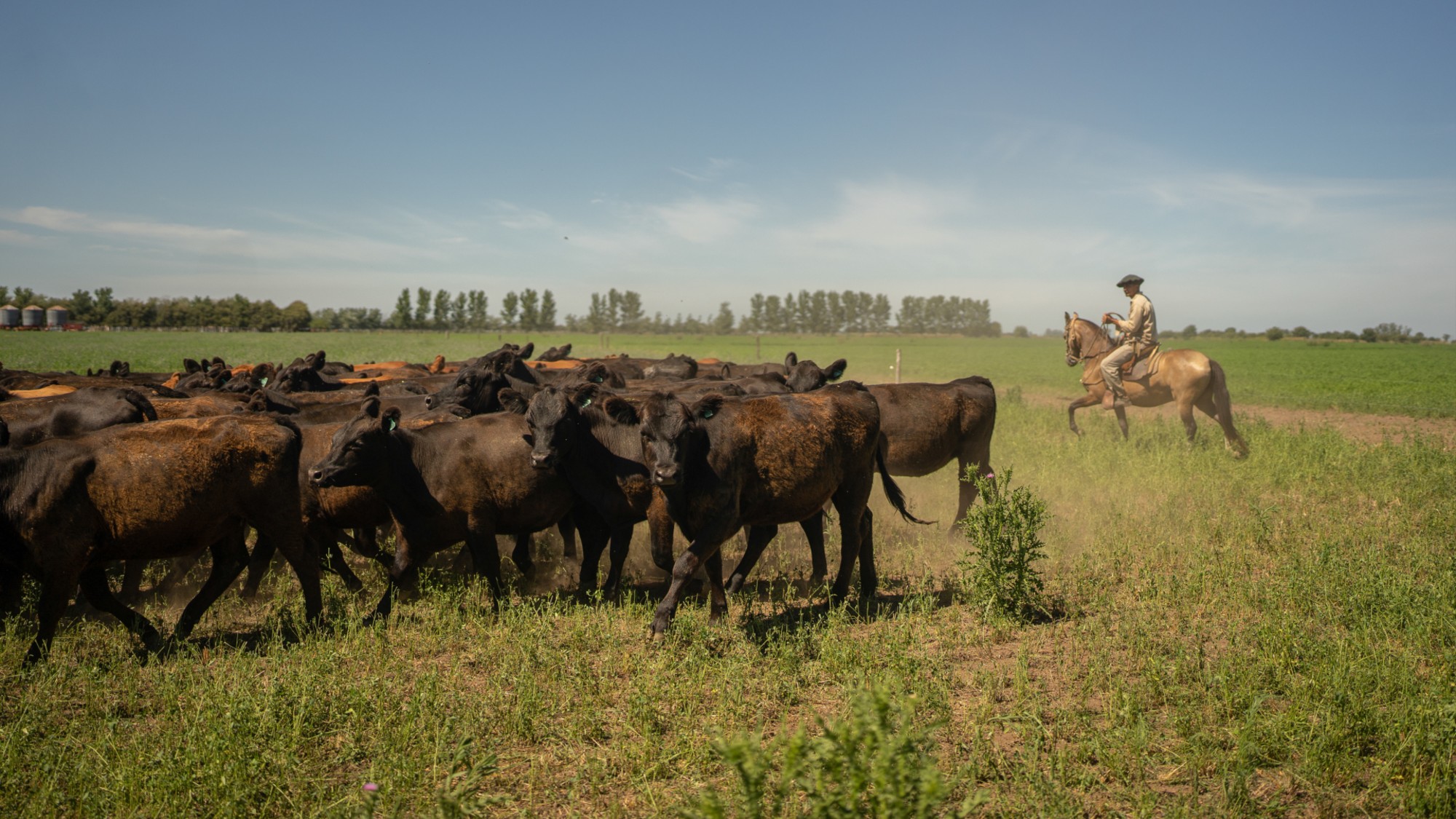American wealth disparity by the numbers
The gap between rich and poor continues to widen in the United States


A free daily email with the biggest news stories of the day – and the best features from TheWeek.com
You are now subscribed
Your newsletter sign-up was successful
The disparity in the United States between those who have money and those who don't is continuing to rise. In the first quarter of 2023, "69% of the total wealth in the United States was owned by the top 10% of earners," according to Statista, while the "lowest 50% of earners only owned 2.4% of the total wealth."
This is because "wealth is much more highly concentrated than income, and concentration at the top has risen since the 1980s," the Center on Budget and Policy Priorities (CBPP) reported. Data shows the scale of this climb over the last 30 years. The amount of wealth held by the top 1% of the country "rose from just under 30% in 1989 to 38.6% in 2016, " the CBPP added. Not only are the rich gaining more money, but everyone else is losing it; the share of wealth "held by the bottom 90% fell from 33.2% to 22.8%."
This phenomenon is not new and illustrates "how little wealth the bottom 50% of households have (less than 2%) and how much the top 10% have (almost three-quarters)," the CBPP reported. The wealth gap continues to affect large swaths of the economy, from Hollywood to corporate boardrooms to minimum-wage earners. As these disparities grow, the issue has "emerged as an important topic of political debate and a major public policy concern," the Brookings Institute stated. But what do the numbers show?
The Week
Escape your echo chamber. Get the facts behind the news, plus analysis from multiple perspectives.

Sign up for The Week's Free Newsletters
From our morning news briefing to a weekly Good News Newsletter, get the best of The Week delivered directly to your inbox.
From our morning news briefing to a weekly Good News Newsletter, get the best of The Week delivered directly to your inbox.
What are the high and low ends of the scale?
To be considered in the top 1% of all Americans, a household needs to make at least $652,657 per year, according to a study by financial adviser SmartAsset. These households earn "more than eight times as much as the median household, which sits around $75,000," the study added.
This is a national average, though, and the top earnings can vary drastically by state. In West Virginia, a yearly wage of $367,582 is all that's needed to be in the top 1% of earners. However, in the top state on the list, Connecticut, households need to bring in $952,902 to be in the top 1%. If Washington, D.C., was a state, it "would rank No. 1 overall in our study," SmartAsset reported, as the top 1% threshold in the nation's capital sits at $1,013,698.
When it comes to the opposite end of the scale, at least 38 million Americans lived in poverty at the end of 2021, according to Census Bureau data. This accounted for 11.6% of the population, despite the United States being by far the richest country in the world.
Poverty is "as much a part of the American story as successes to the American dream," Shailly Gupta Barnes, the policy director at the Kairos Center for Religions, Rights and Social Justice, told CNBC. Barnes also noted that the poverty figures are measured by "comparing pretax income against a threshold set at three times the cost of a minimum food diet in 1963." Given that the poverty measure has mostly gone unchanged since then, it "falls so short of actually giving us an accurate count of poverty in the United States," Grace Bonilla, the president of United Way New York City, told CNBC.
A free daily email with the biggest news stories of the day – and the best features from TheWeek.com
The cost to survive
As the gap between the rich and poor increases, so too does the cost of living itself. In New York City, the cost of living is 222% higher than the national average, per The Council for Community and Economic Research's Cost of Living index. In Honolulu, Hawaii, it's 179% higher, and in San Francisco, it's 169% higher.
The index is based on "housing, utilities, grocery items, transportation, health care and miscellaneous goods and services" and shows that living in the U.S. is becoming continuously pricey. While the cheapest city in the U.S., Harlingen, Texas, costs 25% less than the national average to live in, "those advantages are undercut by a relatively high rate of poverty," CNBC reported.
While many blame the issue on higher inflation over the last few years, according to CNET, the "root causes of why millions of families live paycheck to paycheck and can't afford basic necessities like housing and health care are longstanding and mostly systemic."
Justin Klawans has worked as a staff writer at The Week since 2022. He began his career covering local news before joining Newsweek as a breaking news reporter, where he wrote about politics, national and global affairs, business, crime, sports, film, television and other news. Justin has also freelanced for outlets including Collider and United Press International.
-
 Local elections 2026: where are they and who is expected to win?
Local elections 2026: where are they and who is expected to win?The Explainer Labour is braced for heavy losses and U-turn on postponing some council elections hasn’t helped the party’s prospects
-
 6 of the world’s most accessible destinations
6 of the world’s most accessible destinationsThe Week Recommends Experience all of Berlin, Singapore and Sydney
-
 How the FCC’s ‘equal time’ rule works
How the FCC’s ‘equal time’ rule worksIn the Spotlight The law is at the heart of the Colbert-CBS conflict
-
 Trump wants a weaker dollar, but economists aren’t so sure
Trump wants a weaker dollar, but economists aren’t so sureTalking Points A weaker dollar can make imports more expensive but also boost gold
-
 Tariffs have American whiskey distillers on the rocks
Tariffs have American whiskey distillers on the rocksIn the Spotlight Jim Beam is the latest brand to feel the pain
-
 The longevity economy booms as people live longer
The longevity economy booms as people live longerThe Explainer The sector is projected to reach $27 trillion by 2030
-
 Texas is trying to become America’s next financial hub
Texas is trying to become America’s next financial hubIn the Spotlight The Lone Star State could soon have three major stock exchanges
-
 How could worsening consumer sentiment affect the economy?
How could worsening consumer sentiment affect the economy?Today’s Big Question Sentiment dropped this month to a near-record low
-
 Musk wins $1 trillion Tesla pay package
Musk wins $1 trillion Tesla pay packageSpeed Read The package would expand his stake in the company to 25%
-
 Argentinian beef is at the center of American farmers’ woes
Argentinian beef is at the center of American farmers’ woesThe Explainer ‘It feels like a slap in the face to rural America,’ said one farmer
-
 From candy to costumes, inflation is spooking consumers on Halloween this year
From candy to costumes, inflation is spooking consumers on Halloween this yearIn the Spotlight Both candy and costumes have jumped significantly in price
